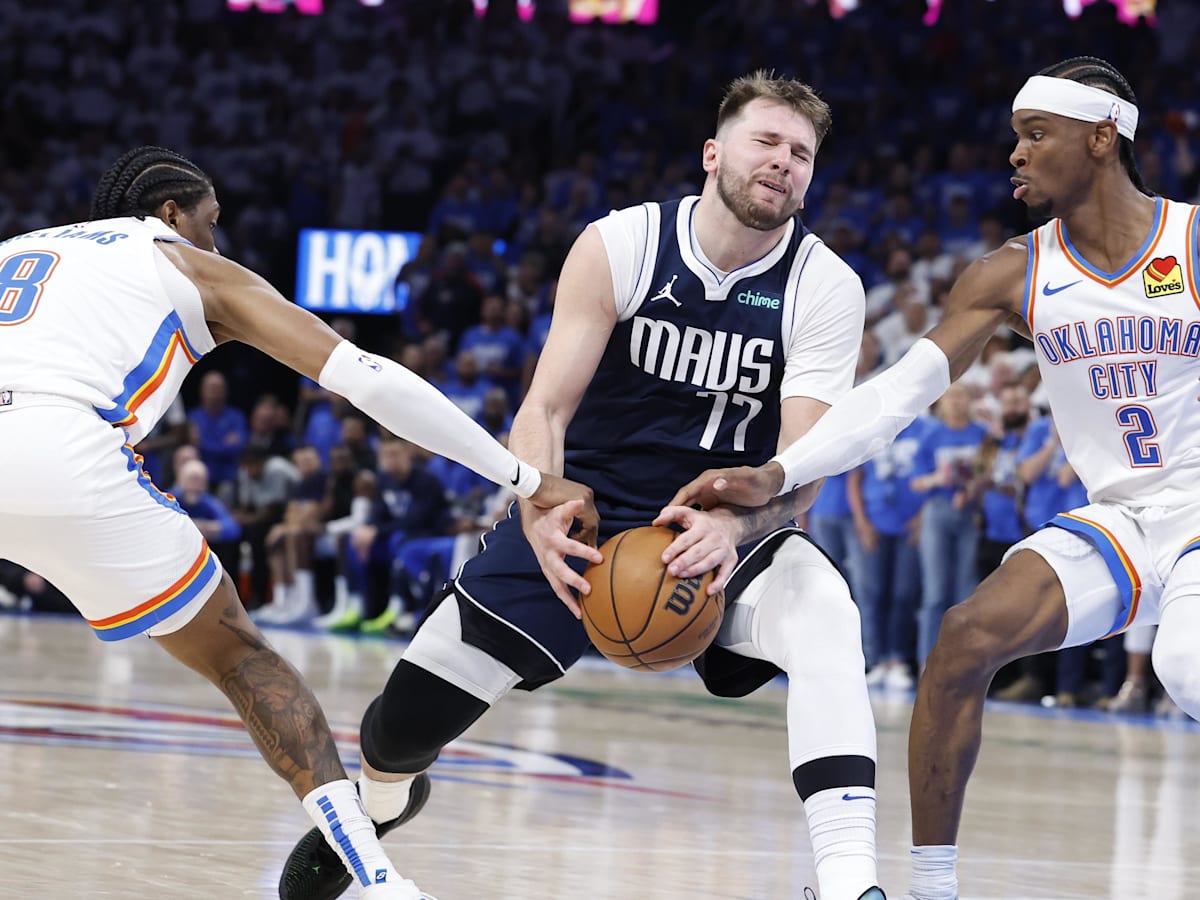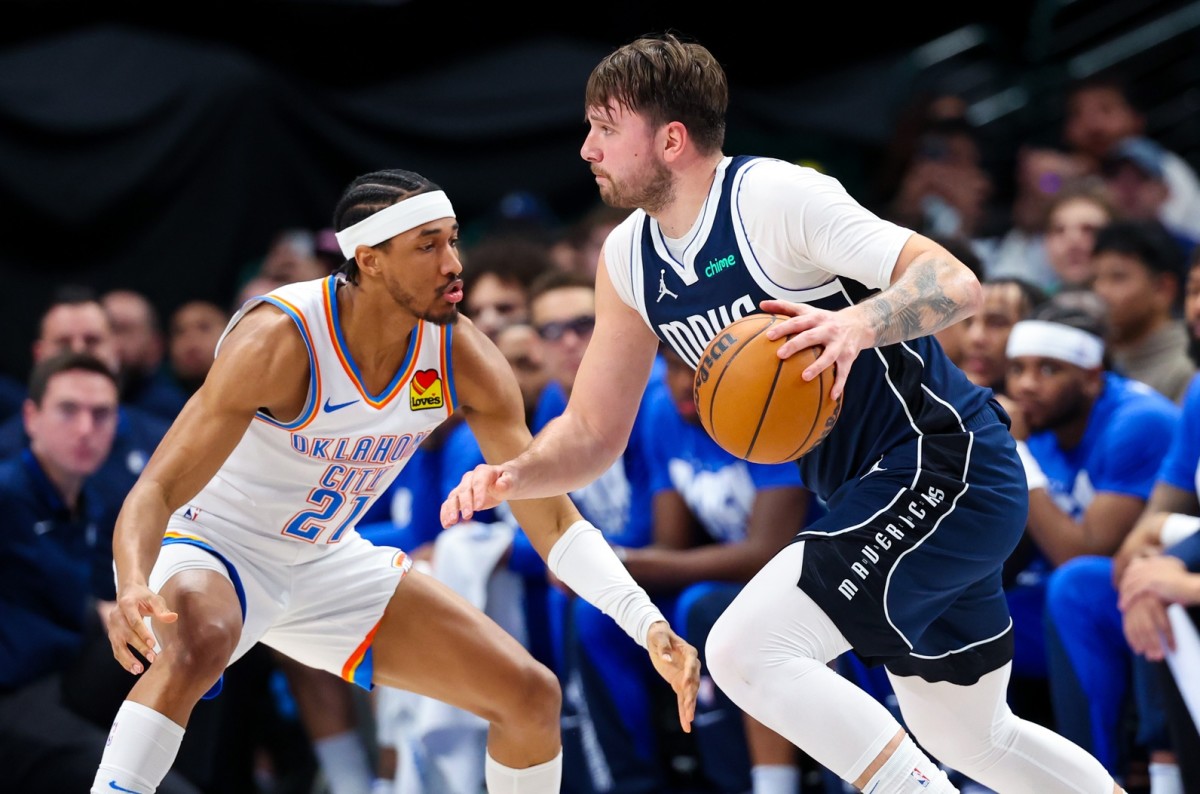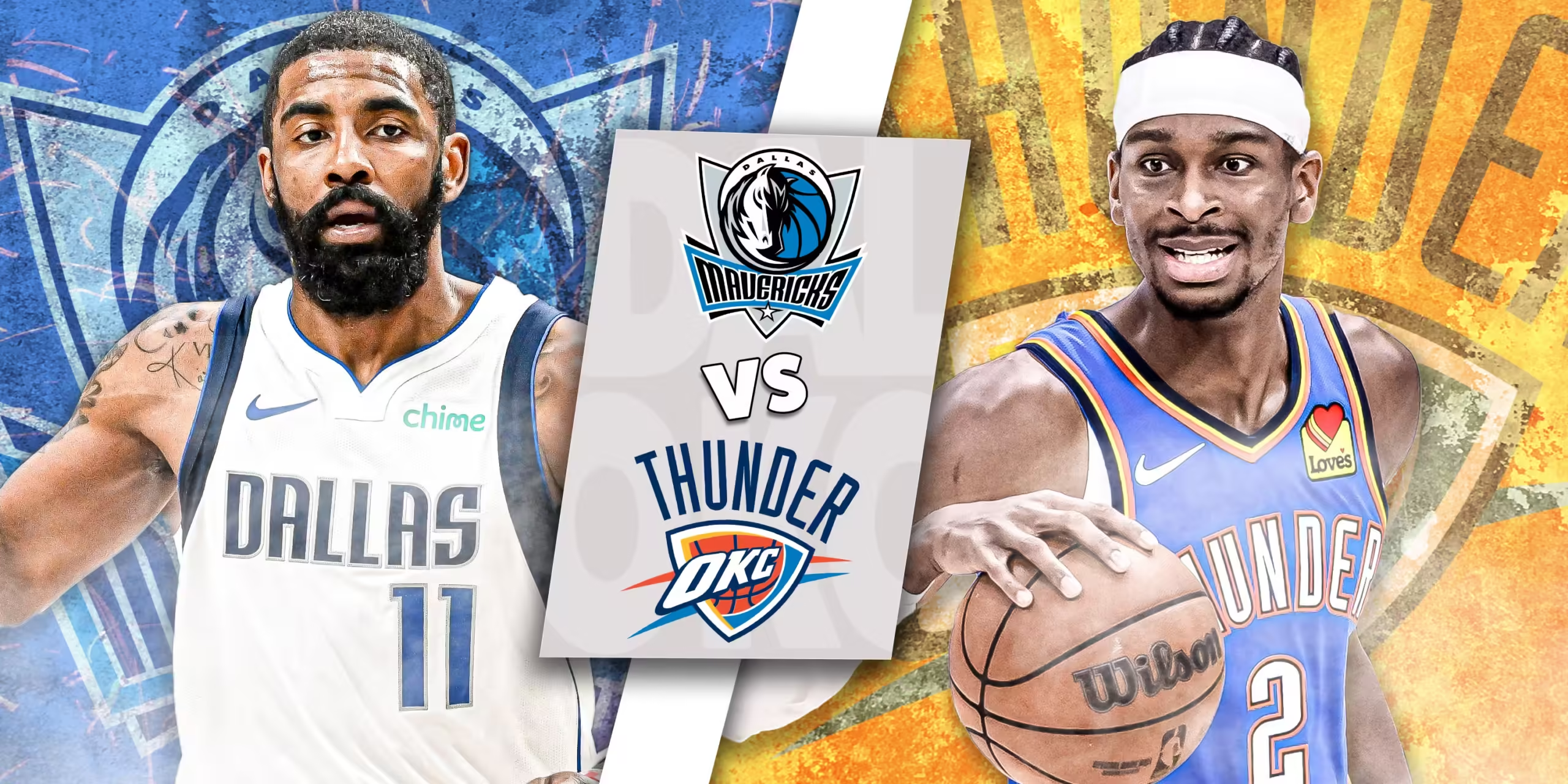The recent Dallas Mavericks vs OKC Thunder Match Player Stats was a clash of strategy, athleticism, and skill. In this post, we will take a deep dive into the player statistics, breaking down the numbers that defined the game and understanding what led to Oklahoma City’s victory. This article will meticulously examine individual performances, shooting percentages, and team dynamics. From Luka Dončić’s commanding presence to Shai Gilgeous-Alexander’s leadership, every detail will be covered.
Introduction
The game between the Dallas Mavericks and Oklahoma City Thunder was a significant event in the 2024 NBA playoffs. This contest saw two teams with distinct playing styles face off in a fierce battle for a spot in the Western Conference Finals. Dallas, led by superstar Luka Dončić, came into the game looking to assert dominance, while Oklahoma City, under the leadership of Shai Gilgeous-Alexander, aimed to capitalize on their youth and energy.
Luka Dončić
Luka Dončić has consistently proven himself to be one of the most skilled players in the NBA, and this game was no exception. With 31 points, Dončić put on a scoring clinic, demonstrating his ability to score from all three levels—inside, midrange, and beyond the arc. His shot selection was superb, and although the Mavericks ultimately fell short, Luka’s performance gave his team a fighting chance.
Shai Gilgeous-Alexander’s Leadership
Shai Gilgeous-Alexander took charge for the Thunder, leading his team with 29 points and 9 assists. His ability to create for himself and others was crucial to OKC’s success. Shai’s decision-making was impeccable throughout the game, and his ability to navigate the Mavericks’ defense made him the standout performer of the night.
Three-Point Shooting
One of the key differences in the match was the teams’ efficiency from beyond the arc. Oklahoma City shot an impressive 45.7% from three, making 16 of their 35 attempts, while Dallas could only convert 34.3% of their shots from deep. This disparity in three-point shooting proved to be one of the most significant factors in OKC’s win.

Rebounding Battle
Rebounding was another area where the Thunder held a clear advantage. They pulled down 52 total rebounds compared to Dallas’ 39, which gave OKC a significant number of second-chance points. Chet Holmgren and Josh Giddey were instrumental in controlling the glass, grabbing key rebounds that thwarted Dallas’ offensive attempts.
The Role of Josh Giddey
Josh Giddey’s contribution cannot be overstated. His 16 rebounds and playmaking ability were critical in the Thunder’s game plan. Giddey’s versatility allowed him to contribute on both ends of the floor, whether it was setting up teammates or crashing the boards for second-chance points.
Free Throw Efficiency
Another often overlooked stat that played a significant role in the outcome was free throw shooting. Oklahoma City shot 75% from the line, converting 21 of their 28 attempts, while Dallas hit only 68% of their free throws. In a game where every point counts, these missed opportunities added up for the Mavericks.
Costly Mistakes for the Mavericks
Dallas struggled with turnovers, committing 15 throughout the game. Oklahoma City, on the other hand, only turned the ball over 9 times. The Thunder capitalized on these mistakes, scoring 22 points off turnovers. This margin played a critical role in OKC’s ability to build and maintain their lead.
OKC’s Defensive Strategy
Oklahoma City’s defense was outstanding, particularly in how they managed to contain Dallas’ supporting cast. While Dončić got his points, the Thunder limited the contributions from other key players on the Mavericks. OKC’s rotations were quick, and their ability to close out on shooters made it difficult for Dallas to find an offensive rhythm.
Mavericks’ Defensive Woes
On the defensive end, Dallas had a tough time containing the Thunder’s offense. Oklahoma City consistently found ways to exploit the Mavericks’ defensive schemes, particularly in transition and in the paint. Dallas’ inability to prevent dribble penetration and contest shots inside the paint was a glaring weakness that OKC exploited throughout the game.
Bench Performance
Oklahoma City’s bench played a crucial role in their victory, with players like Isaiah Joe and Ousmane Dieng contributing valuable minutes and points. The depth of OKC allowed them to maintain their energy levels throughout the game, whereas Dallas’ bench struggled to make a significant impact.
OKC’s Inside Game
Points in the paint were another area where Oklahoma City outperformed Dallas. The Thunder scored 40 points inside, compared to the Mavericks’ 32. This advantage was largely due to OKC’s aggressive approach in attacking the rim and their ability to finish at the basket.
Fast Break Points
The Thunder were also more effective in transition, scoring 9 fast break points to Dallas’ 8. While this might not seem like a massive difference, these fast break opportunities allowed OKC to establish momentum and put pressure on Dallas’ defense.
Chet Holmgren’s Impact on Both Ends
Chet Holmgren was a standout for OKC, contributing not just on the boards but also in rim protection and scoring. His presence in the paint was a constant threat to the Mavericks’ offense, and his ability to stretch the floor on offense created mismatches that Dallas struggled to handle.

Mavericks’ Offense
One of the major takeaways from this game was the Mavericks’ heavy reliance on Luka Dončić. While Luka is undoubtedly one of the best players in the league, the Mavericks’ offense became too predictable, making it easier for OKC to focus their defensive efforts on him.
OKC’s Balanced Attack
In contrast to Dallas, Oklahoma City had a more balanced offensive attack. While Shai Gilgeous-Alexander led the team in scoring, the Thunder had multiple players who contributed offensively, making it difficult for Dallas to focus on just one player.
Coaching Decisions
Coaching also played a pivotal role in this game. Mark Daigneault’s game plan for Oklahoma City was executed to near perfection, while Dallas’ head coach struggled to make the necessary adjustments. The Thunder’s ability to adapt throughout the game gave them a clear edge.
The Importance of Momentum
Momentum played a huge role in this game, especially during the third quarter when OKC made a significant run that Dallas couldn’t recover from. The Thunder’s ability to maintain their intensity throughout the game allowed them to keep the pressure on the Mavericks.
Conclusion
Dallas Mavericks vs OKC Thunder Match Player Stats This game was a clear indication of the challenges Dallas faces if they hope to advance in the playoffs. While Luka Dončić is a generational talent, the Mavericks will need more from their supporting cast to challenge a deep and talented OKC team. On the other hand, the Thunder’s balanced attack and defensive intensity make them a formidable opponent moving forward.
Read Also: Andre Hakkak Wife Marissa Shipman and theBalm Cosmetics





